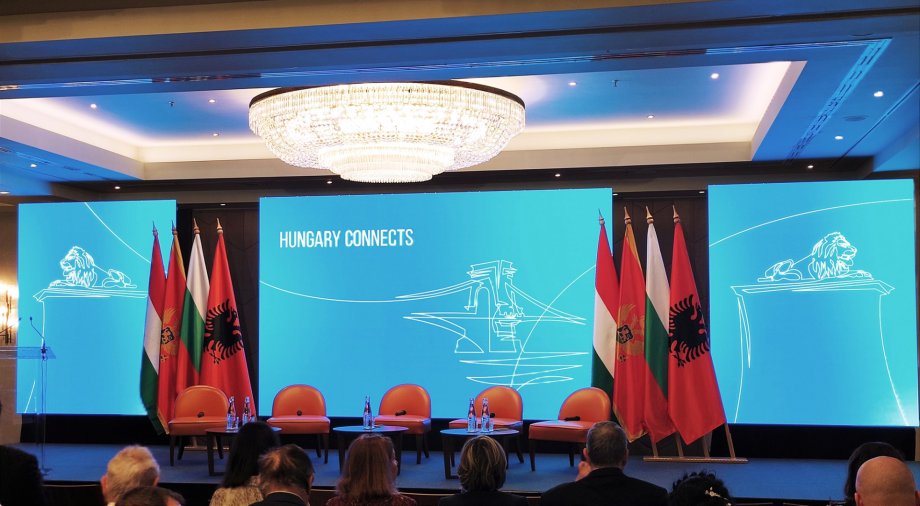We participated in the Budapest Balkans Forum 2025

The event aimed to promote the European Union integration of the Western Balkans and to discuss the economic and political challenges facing the region. Hungarian and international experts, diplomats, and policymakers shared their views and recommendations on the future of the region.
The event began with an opening speech by Gladden Pappin, President of the Hungarian Institute of International Affairs. Pappin emphasized that Hungary is firmly committed to supporting the EU accession of the Western Balkan countries, as this would not only strengthen the stability of the region but also serve the interests of the European Union as a whole.
A key topic of discussion was the current state of the EU’s enlargement policy, which was addressed by Péter Szijjártó, Minister of Foreign Affairs and Trade, during the ministerial roundtable discussion. He pointed out that Western Balkan countries have been waiting an average of 14.5 years for EU membership, yet the accession process has stalled in several cases. Using Serbia as an example, he noted that the country has been ready to open a new negotiation chapter for four years, but certain EU member states continue to impose additional conditions for progress. He underlined Hungary’s support for accelerating the enlargement process and highlighted the importance of energy cooperation, particularly the gas pipeline connecting Hungary and Serbia.
The ministerial roundtable also featured Besar Durmishi, Tanja Miščević, and Nik Gjeloshaj, with Márton Ugrósdy moderating the discussion.
Throughout the day, additional key panel discussions took place:
- "Normative Europe in the Western Balkans Revisited" – This high-level panel explored the EU’s normative role in the Western Balkans, featuring speakers Ulrike Hartmann, Zsolt Bunford, René Troccaz, and Ivica Bocevski. The discussion was moderated by László Dux.
- "Bridging the Divide: The Western Balkans as the EU and NATO’s Strategic Security Anchor" – This panel analyzed the strategic role of the EU and NATO in ensuring security in the Western Balkans. Speakers included Péter Sztáray and Caroline Ziadeh, with István Balogh moderating.
In the afternoon, Zsolt Németh delivered a keynote speech, emphasizing the importance of regional stability and the opportunities within the EU enlargement process.
The Budapest Balkans Forum 2025 highlighted that the European integration of the Western Balkans continues to face significant challenges. Experts and policymakers agreed that the stability and development of the region require closer cooperation with the European Union. Hungary remains committed to actively supporting the Western Balkans’ EU accession and has taken several steps toward this goal during its EU presidency.

